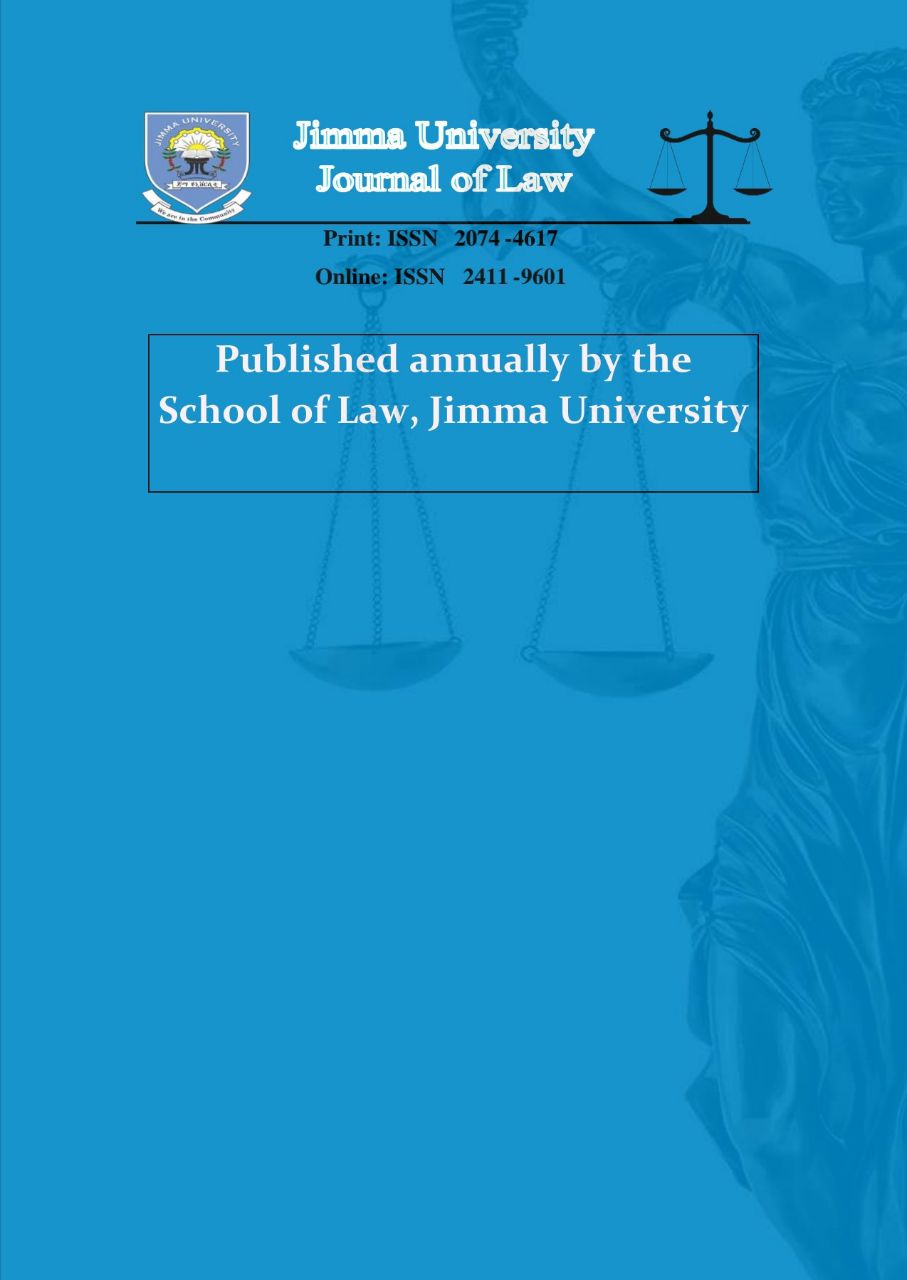Rethinking Justiciability and Enforcement of Socio-Economic Rights in Ethiopia: International Context and Comparative Perspective
Abstract
The Constitution of the Federal Democratic Republic of Ethiopia has
incorporated civil and political rights and economic, social and cultural rights in
the Fundamental Rights and Freedoms (the Bill of Rights) part. The
Constitution ensures the indivisibility, interdependent and interrelatedness of
human rights. Furthermore, it directs the state to ensure its policies aiming at
realizing the rights under the National Policy Principles and Objectives-the
Directive Principles of State Policy section of the Constitution. The inclusion of
socio-economic rights in the directive principles are most of the time, presumed
to make them beyond the reach of the courts. However, the justiciability and
enforcement of socio-economic rights are guaranteed under the United Nations
Human Rights System, the African Human Rights system and domestically-in
the courts of some countries. The changes on socio-economic landscapes in the
international arena have necessitated the rethinking of justiciability and
enforcement of socio-economic rights in Ethiopia. This article endeavors to
analyze the justiciability and enforcement of socio-economic rights under the
1995 Constitution of Ethiopia. It argues that the model of adjudicating socioeconomic
rights in India and South Africa should be imported to Ethiopia for
the better achievement of socio-economic justice throughout the country. It,
inter alia, reviews the jurisprudence and practices of enforcing socio-economic rights under the Committee on ICESCR, the African Commission on Human and Peoples' Rights, and the experiences and jurisprudence of the Constitutional
Court of the Republic of South Africa and the Supreme Court of India.




